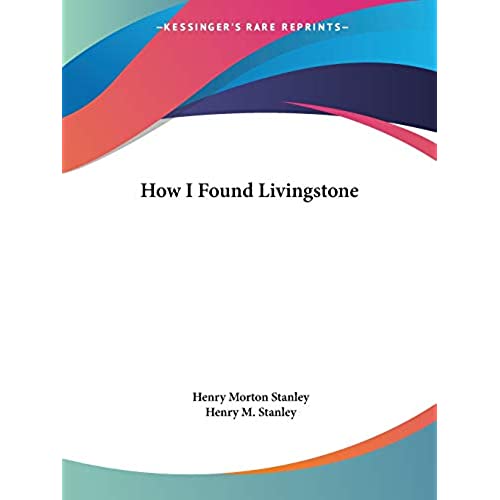

How I Found Livingstone
-

J. R. Fetty
Greater than one weekIve have read other books about this trek into darkest Africa plus the movies. This version ranks right up there with the best. More than just a story of the search is tells us a lot of the mind set of the Victorian Male and the craze the whole era had for exploring in general. Great read.
-

Robin
> 3 dayAfrican history without the politcally correct filter. Written in a 19th century style that tells of the trials of safari in early Africa
-

Jere A. Houser
> 3 dayReading this is almost like being with Stanley on his hunt for Livingston. If anyone saw the movie with Spencer Tracy, dont expect the book to be similar.
-

The Country Squire
> 3 dayIf you ever wondered what it was like to go on safari in Africa in the 1870s this is the book. The book is written in the elegant language that has been lost through the ages. Stanley describes his story of finding Dr. Livingston and all of the hardships that exploring darkest Africa which at the time was still like it was at the beginning of man. If you like adventure stories you will love this book.
-

Ms Chie Vious
> 3 daythis book is very very very repetitive (did you catch catch that?). However, Henry transports you to Africa right into the tribal culture, which is purely a magical read.
-

Vivie Sis
Greater than one weekI really liked this book but I gave 4 stars because he often seem to ramble into other stories. It was not hard to follow but I thought is had to many hmmmmmm asides I guess. But the look into Africa and the their way of life and especially the way they were thought of at the time and most especially the way they treated. I know that today it is still often thought that way and about our African-Americans here in the USA. It was hard to read because of the frankness in the truth. I do whole heartedly recommend this book to everyone. It should be required reading.
-

Kindle Customer
> 3 dayI liked it for the history, not sure about its entertainment value for the non history buff.
-

Charles J. Helseth
> 3 dayThe story is awash with mind-numbing details using un-explained and un-familiar names/terms which sometimes leaves ones head spinning. I stuck with it because of the actual history it relates.
-

Joseph F. Burke
08-06-2025Even though Stanley was a journalist, his writing style left much to be desired. Still, its good to get the words from the horses mouth. And it was an epic journey for the time and place.
-

SM Venter
> 3 dayVery interesting true life storey of great historical importance. A must for history buffs. This detailled account of the story behind Dr Livingstone, I presume as spoken by Stanley brings to life the journeys taken by reporters of yesteryear.
